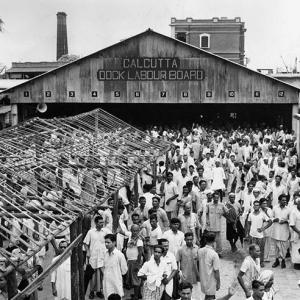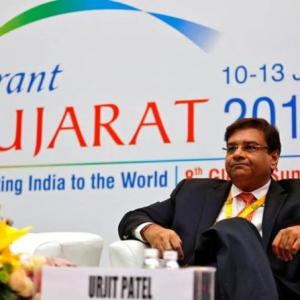Uttam Galva Steels is a part of the Reserve Bank of India's second list of cases, which will be referred to the bankruptcy tribunal for insolvency proceedings after lenders failed to resolve the account by December 2017.

State Bank of India will take a decision on a one-time settlement application filed by Uttam Galva Steels at a 50 per cent haircut by March-end, if accepted, will prompt other companies, being referred to the National Company Law Tribunal (NCLT) under the Insolvency and Bankruptcy Code (IBC), to apply for a similar relief.
Uttam Galva Steels had defaulted on its Rs 6,000 core of debt and the firm has made an offer last week to its lenders.
“This is likely to be accepted as the banks do not want to delay settlements due to rising litigation,” a source said.
“But at the same time, it will open up other companies to file similar settlement application with the lenders, thus raising a question mark over the entire IBC process,” said a lawyer.
Uttam Galva Steels is a part of the Reserve Bank of India's second list of cases, which will be referred to the bankruptcy tribunal for insolvency proceedings after lenders failed to resolve the account by December 2017.
Banks were also under pressure to settle the cases as the NCLT last week made it clear that the committee of creditors could not take the role of judges.
While hearing a petition filed by Liberty House against the resolution professional of Bhushan Power and Steel, the NCLT said there could be no absolutism by the resolution professional and committee of creditors in the insolvency process.
According to the tribunal, the supervisory role of adjudicatory authority presumes more importance in order to maintain the sanctity of the resolution process, while staying the proceedings in the Bhushan Power case.
Lawyers said the NCLT had made it clear that the final call should rest with it, while resolution professional and the lenders were expected to vet the proposals.
As of now, the lenders have achieved limited success in resolution of the top 40 cases identified by the Reserve Bank of India since June last year.
In most of the cases, the resolution professionals interpreted the clauses and amendments to the IBC 2016 differently, which led to a slew of litigations across all the NCLT benches.
Lenders of Binani Cement chose a bid by Dalmia Bharat Cement, even as rival bidder UltraTech Cement had alleged that the resolution professional did not follow a transparent method in the bidding process and did not offer any details on what grounds its bid was not allowed.
The NCLT will hear the case on Monday. Another petition has been filed by Binani Industries, promoter of Binani Cement, in the National Company Law Appellate Tribunal (NCLAT), Delhi Bench, against the entire process alleging undervaluation of the company.
The resolution professionals have also come under fire for not applying the eligibility criteria appropriately.
For example, in Electrosteel Steels case, Renaissance Steel India, also a bidder for Electrosteel, moved the tribunal challenging the eligibility of Tata Steel and Vedanta.
Section 29A of the IBC disallows a person from submitting a resolution plan if it or any other person acting jointly or in concert with it, has been convicted of any offence punishable with imprisonment up to two years or more.
Tata Steel UK was convicted in an industrial accident, while Konkola Copper Mines, a subsidiary of Vedanta Resources, was found guilty of environmental pollution in Zambia.
Both Vedanta and Tata Steel opposed it in the tribunal saying they were eligible to bid. Tata Steel is also the highest bidder for Bhushan Steel and Bhushan Power and Steel.
The bench has reserved its order.
Lenders said most of these cases would be finally decided in the Supreme Court as these were filed by cash-rich bidders or promoters, who could take the fight to the apex court.
Photograph: Amit Dave/Reuters










